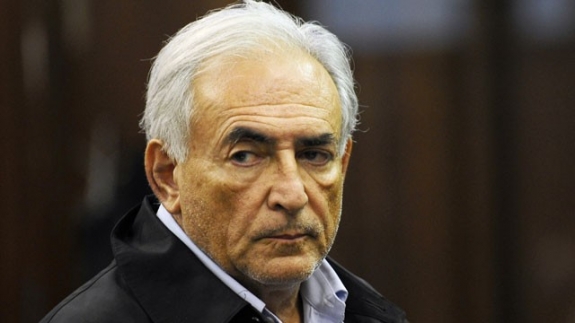Two French men, both Jewish, both powerful, both wealthy, both part of the art elite, both with strong ties to the United States, one a friend of French president Nicolas Sarkozy, the other a potential rival – and both in trouble with the law, in America and in France. It’s enough to wag even the most apathetic of tongues, and it is, especially in Paris, where some claim both cases smack of anti-Semitism and political conspiracy, while others call it a cautionary tale about the arrogance of power.
This past week, while Dominique Strauss-Kahn, the former head of the International Monetary Fund, celebrated the near-collapse of the case against him for alleged rape of a chambermaid at New York’s Sofitel hotel, Guy Wildenstein, scion of the Wildenstein art dynasty, was charged with possession of stolen property and fraud. For Wildenstein, the charges are the latest in a series of criminal investigations and lawsuits that have followed him over the past six years, in which numerous works of art have been seized from the family holdings, which some estimate to be worth $4-5 billion, and possibly even more. Both Strauss-Kahn, or DSK, as he is known, and Wildenstein are Jewish. Both have homes in the USA and Paris. But where Strauss-Kahn was a strong contender to oppose Sarkozy in the 2012 French Presidential elections, Wildenstein is a close friend of Sarkozy and a founding member of his political party, the UMP.
The Intrigue: Art Power Meets Political Power Meets Billionaire Wealth
But the connections don’t stop there. DSK’s wife, the American-born journalist Anne Sinclair, is also the granddaughter of legendary Paris art dealer Paul Rosenberg, who – back in the day — worked closely with Wildenstein’s own grandfather, Georges. (The Wildenstein art dynasty extends back five generations with the founding of the Wildenstein Gallery in Paris in the 1870s.) The two galleries – Rosenberg and Wildenstein – were among the world’s most powerful during the early-to-mid 20th-century, and together represented the works of Pablo Picasso. Sinclair’s art collection, inherited from her mother, is to some extent shrouded in secrecy; and while the contents of the collection are not entirely known, ArtInfo.com estimates its worth at “tens of millions of euros.” (In truth, it may well be worth significantly more than that, given the number of Picasso works alone – possibly reaching into the billions, or near it.)
Now, here’s where the story gets tricky. ArtInfo also reports that “Much of Paul Rosenberg’s collection was looted by the Nazis, and, though the family has obtained restitution for several works, it is thought that many more have not been returned to their rightful owners.” Match this with the fact that, along with the lawsuits and criminal investigations plaguing Wildenstein, some Jewish families allege that the Wildensteins – though Jewish themselves – cooperated with Nazi officials from time to time. And many of the lawsuits against Guy Wildenstein have been filed by the families and descendants of French Jews, who contend that works left in the care of the Wildenstein family for safekeeping during WWII still remain in the Wildenstein vaults. In January of this year, French police raided the Wildenstein Institute in Paris, seizing various works by Edgar Degas, Berthe Morisot, and others, which Jewish families and others claim were stolen (or at least, should have been returned to them, and were not). Were any of these works once in the Rosenberg collection? Are they part of what should have been Sinclair’s inheritance?



